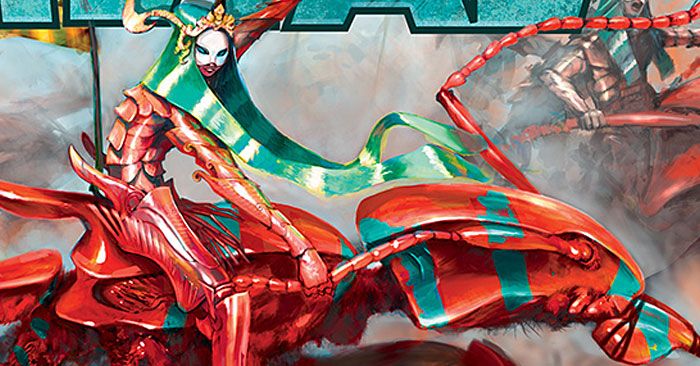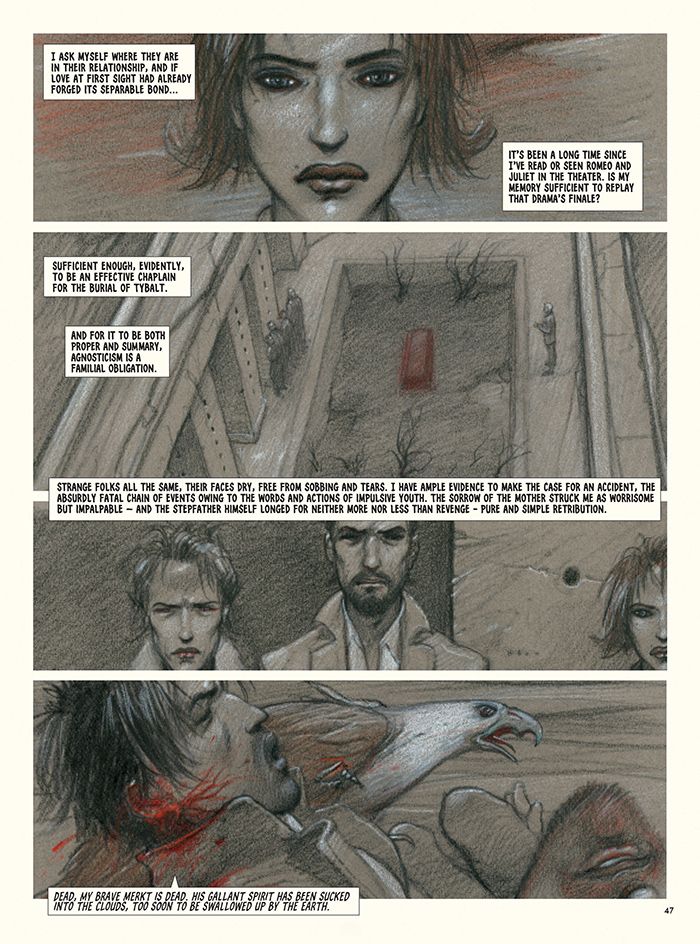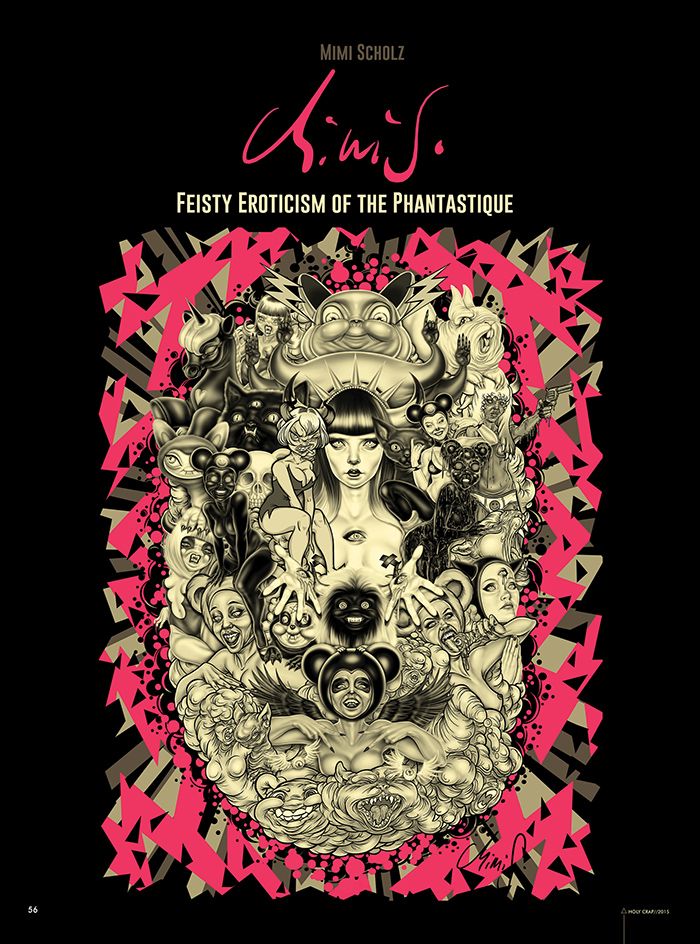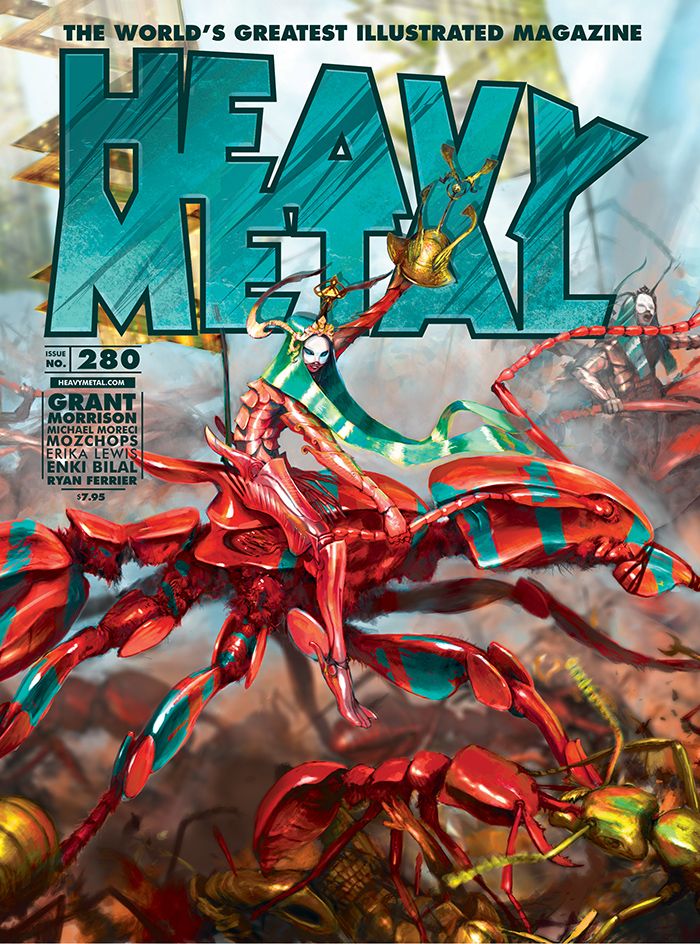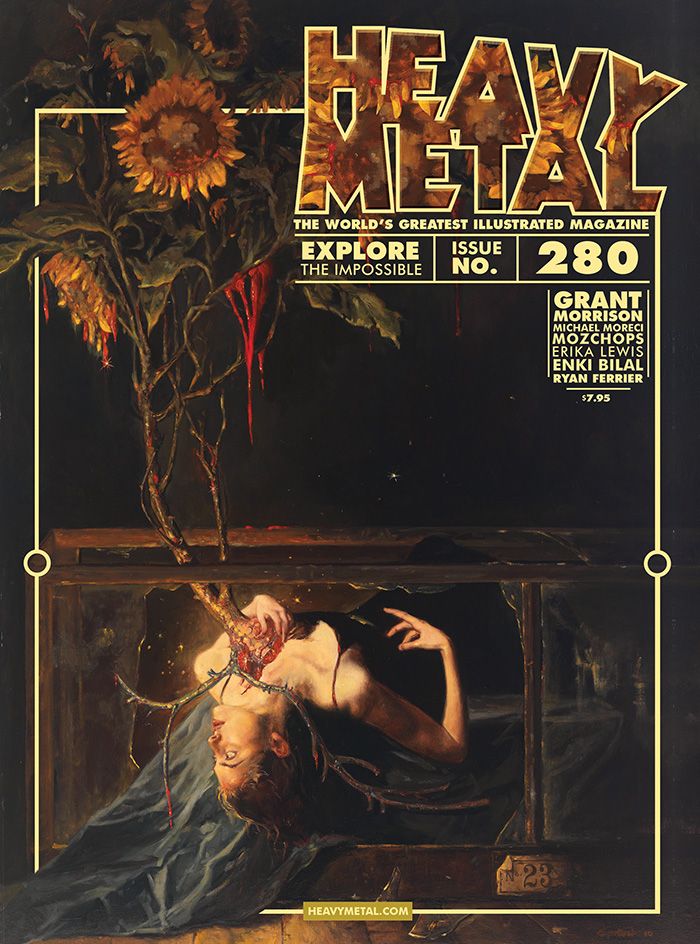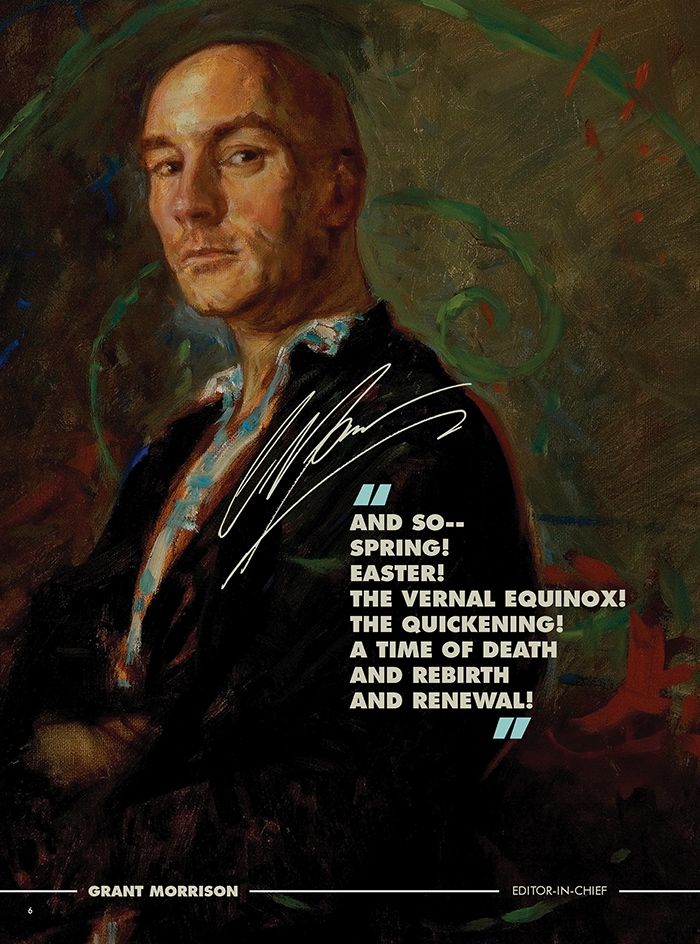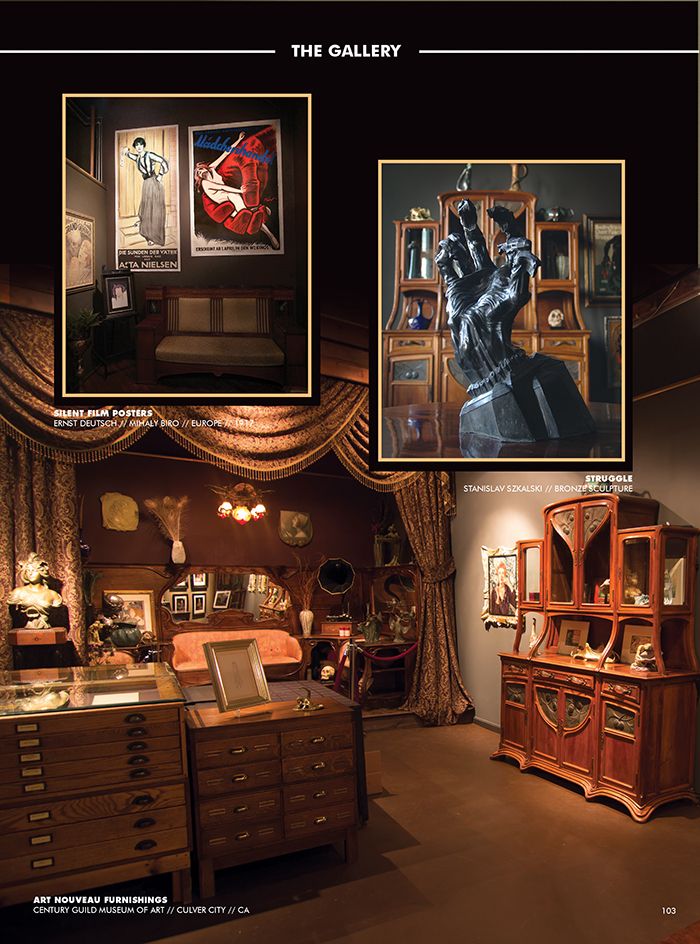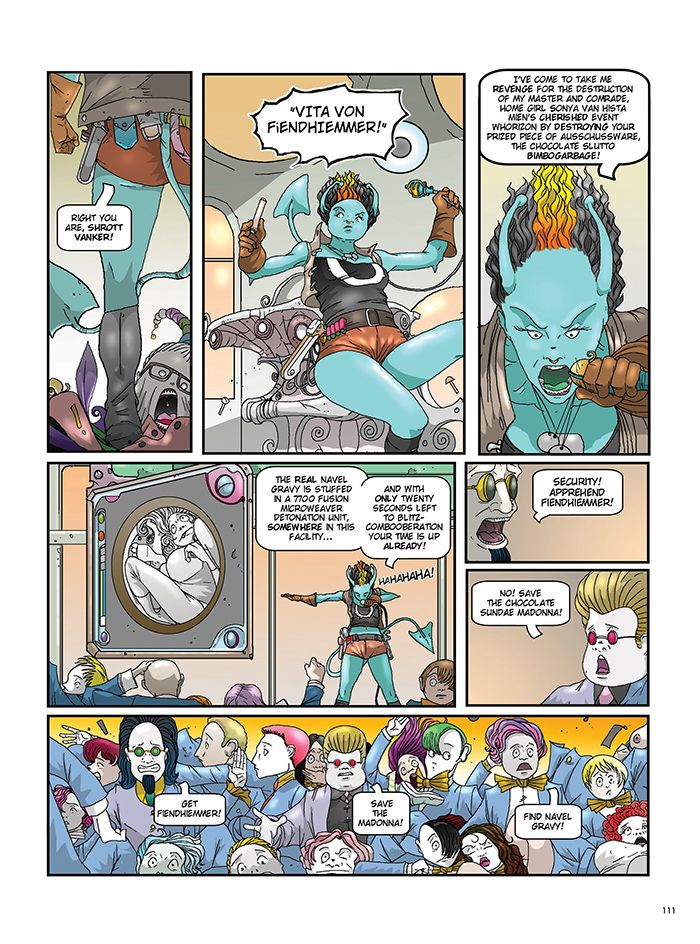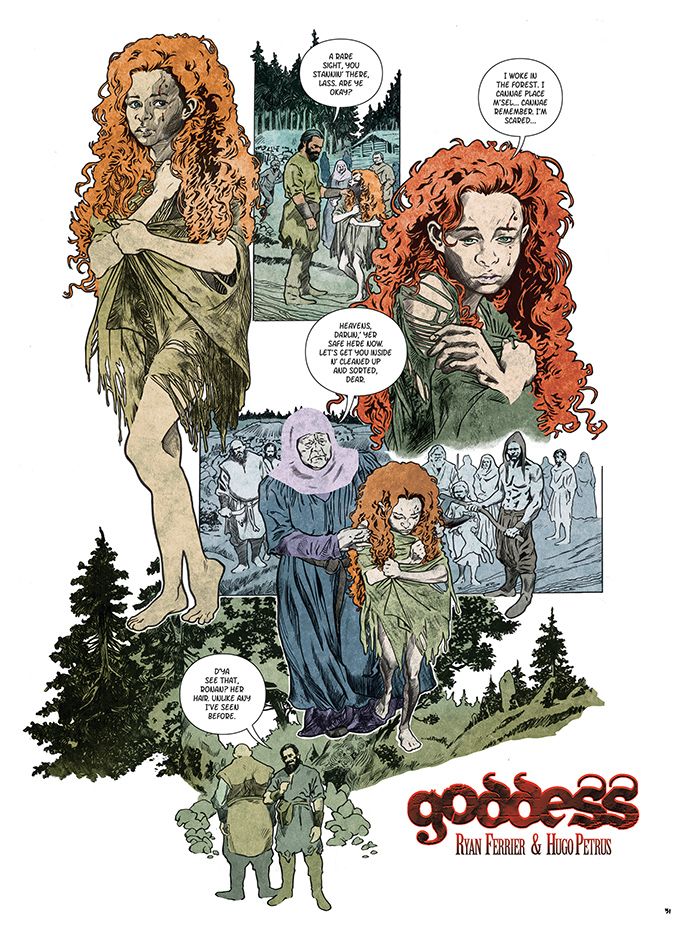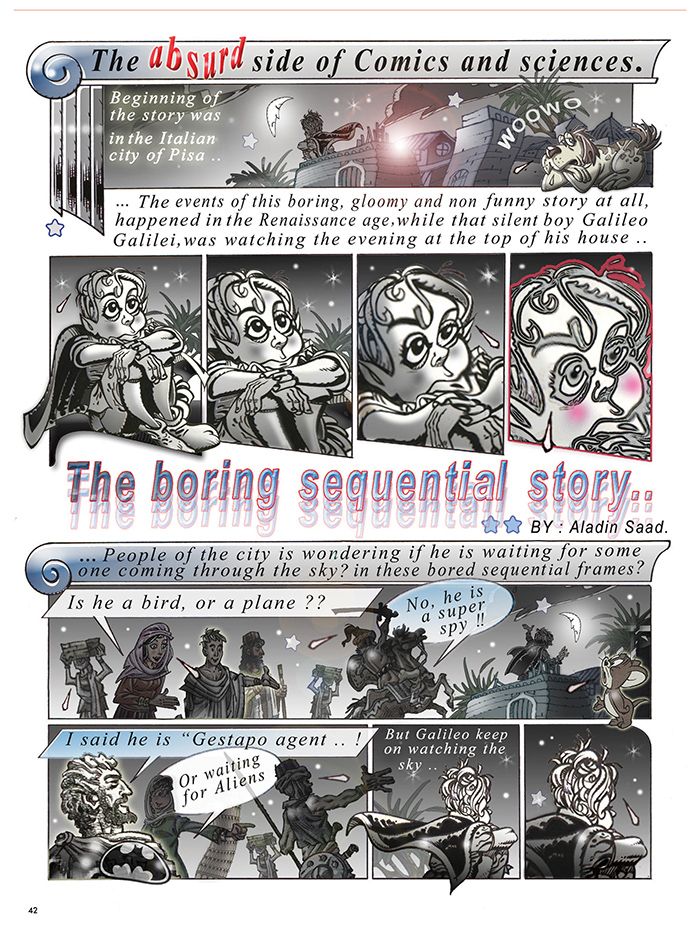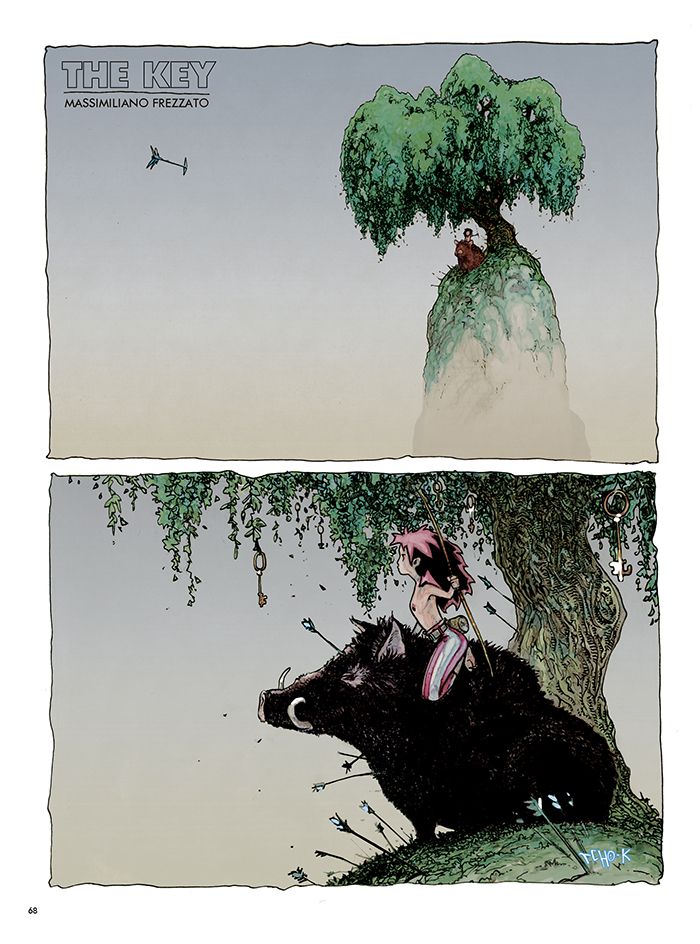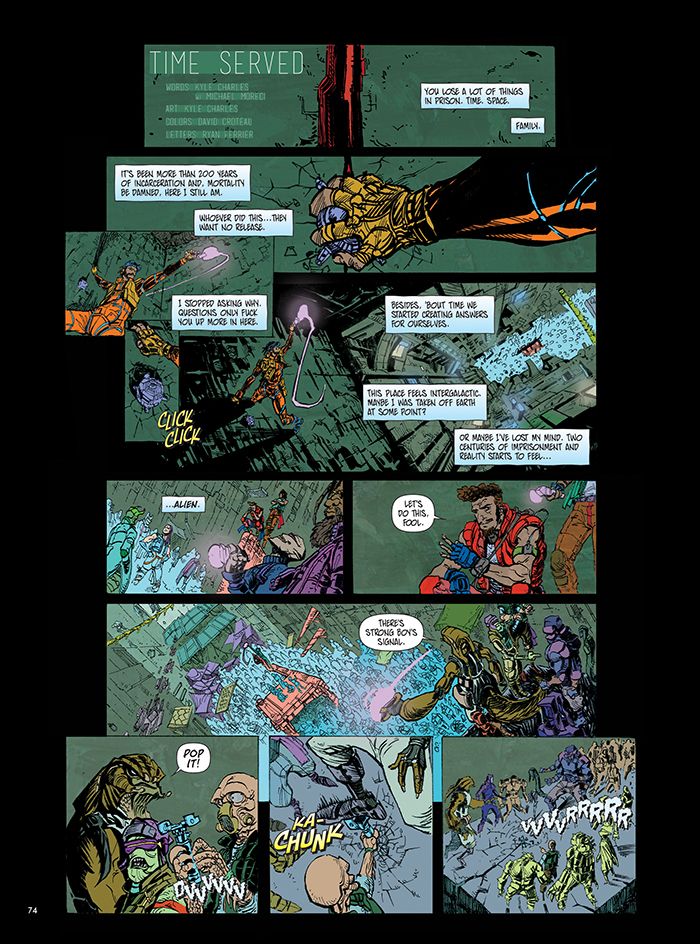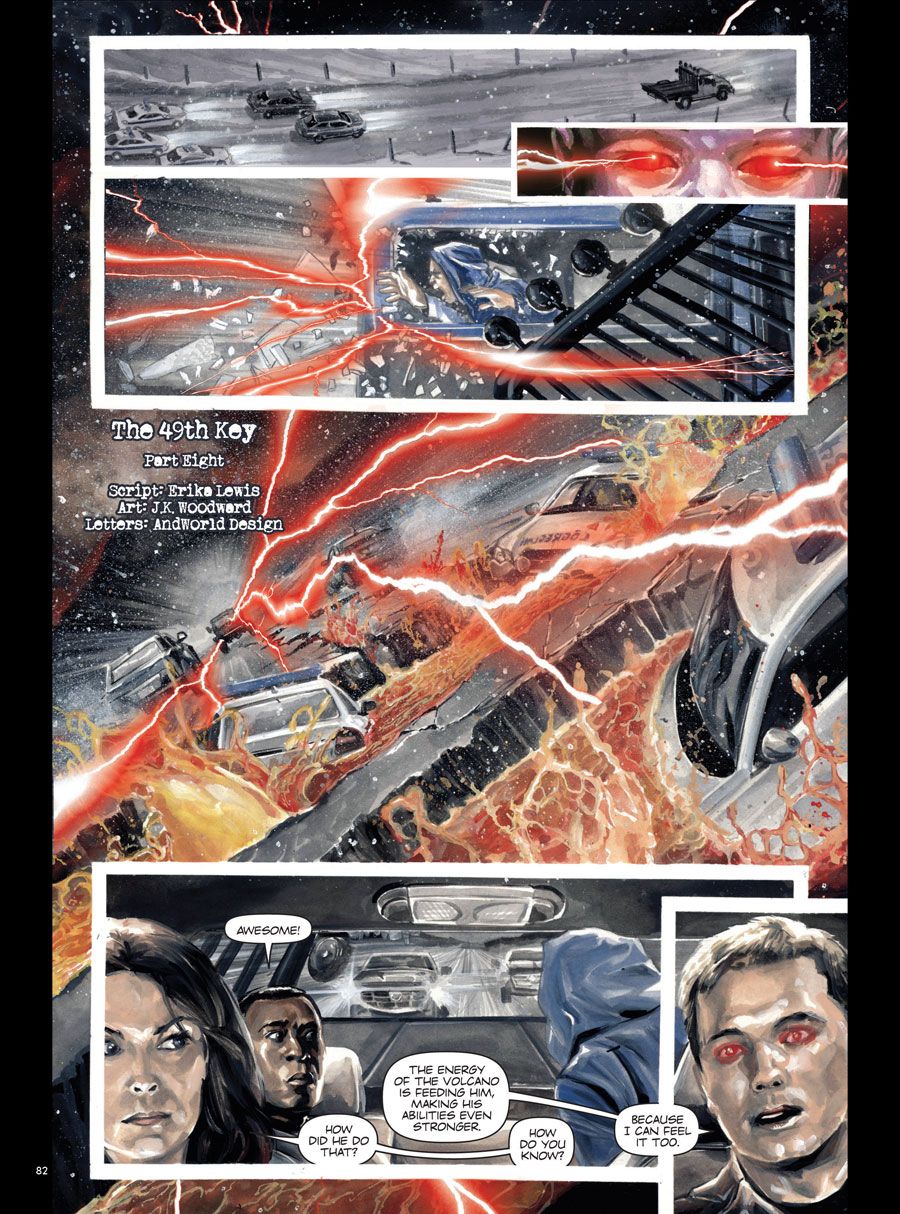Since its debut in 1977, "Heavy Metal" has featured the work of some of the greatest and most influential creators in the world. Names like MÅ“bius, Robert Crumb, Frank Miller, Stephen King, H. R. Giger and even an angry letter from Steven Spielberg have graced the pages of the science fiction/fantasy magazine over its long run.
Now, another legend has joined those acclaimed ranks, with comic book superstar Grant Morrison making his debut as the publication's new Editor-in-Chief in "Heavy Metal" #280.
With his vision now available for readers to experience, CBR connected with Morrison to discuss his role with the long-running publication. The Eisner-winning scribe shared details about his first story for the magazine, "Beachhead," a hilarious, albeit powerful anti-war sci-fi parody illustrated masterfully by Benjamin Marra of "Terror Assaulter OMWOT (One Man War On Terror)" fame.
RELATED: Morrison, Paquette Working on "Wonder Woman: Earth One" Sequel(s)
Morrison also sings the praises of long-time contributor Enki Bilal, who is currently delivering the haunting serial "Julia & ROEM" to the magazine, and relative newcomer Mozchops, the writer and artist of the six-part "beautiful" bug story "Salsa Invertebraxa," which made its debut in the new issue.
CBR News: There are those that cringe at terms like reboot or reimagining, but is this The New "Heavy Metal" or even "Heavy Metal": Rebirth?
Grant Morrison: [Laughs] No, if anything it's just more reflective of me as someone who is really into science fiction or comics. It's about me specifically choosing stories out of all of the ones that we have available, the ones that to me feel most like "Heavy Metal." It probably feels a little different than the usual "Heavy Metal." Is it a revamp? Maybe a little, but it's really just my personal reflection the title. That's what gives it the slightly different feel. It's that simple.
After nearly 40 years, what makes "Heavy Metal" relevant for today's readers? Obviously, bringing you to the title as the new editor-in-chief means that the publishers were looking to expand the audience and interest more traditional, more mainstream comic book readers.
"Heavy Metal" has always been relevant in its own way . But, like you said, bringing in someone like me does connect it more to comic book mainstream, which hopefully makes it more appealing for the people that used to read Marvel and DC and still read Marvel and DC. "Heavy Metal" has been through many changes and quite a few approaches in terms of material and how it presents things. It's been almost like a "Playboy"-style magazine with lots of articles surrounding the comics, and other times it's been a lot more comic book-y. We're not trying to remake something. "Heavy Metal" has been around for a long time, and will be around for a long time after me. What we're trying to do is really focus it down. That's one of the things that I have learned from mainstream comics and hope to bring to the magazine.
Grant Morrison, Editor-in-Chief, "Heavy Metal." That's a hefty title. You obviously have enjoyed a long and celebrated career as a writer. How's life as the big kahuna?
It's been great, but let's be honest, I'm doing a lot of hard work. [Laughs] We have a few contributing editors that send me stuff, so I just get a big, big box of new material and my wife Kristan and I just sip at some champagne and start selecting stories we like. It's been a lot fun, but other people are doing all of the hard work of making sure we have all of the material that we need. "Heavy Metal" actually gets a lot of submissions.
A lot of what I am doing is that I am suggesting a theme for every issue. Once we have a theme, we can start building the magazine. Certainly, we are finding stuff that you just don't see anywhere else. I'm a mainstream comics reader, and I get my comics generally in a box from DC, so I am used to seeing a specific kind of comic. It's been great to see international writers who have completely different ways of seeing things and telling stories. That's been fun. Nowhere else would I have found the Mozchops story "Salsa Invertebraxa," which is my favorite thing right now. It's bugs -- but it's beautiful and so unique. You're never going to find that at Marvel or DC, or even Image. It's an entire comic about bugs, and I am so happy that we can showcase something that's as beautiful and as unusual and as unique as that comic. That's been the most rewarding thing for me, finding comics like "Salsa Invertebraxa" that I never would have stumbled upon in my usual reading.
Some legendary "Heavy Metal" contributors like MÅ“bius and Jean-Claude Forest have passed away, but would you be interested in bringing other iconic writers and artists like Alejandro Jodorowsky and Milo Manara back to the title? Or is it now, more than ever, a playground for new creators to find their voice?
It's a little bit of both. Obviously, Enki Bilal still has a regular serial. He was working with "Heavy Metal" long before I came onboard. As I said before, "Heavy Metal" without Bilal is like salsa with no chips. There are a number of stories coming from the past that haven't been seen for a long, long time or haven't been seen before at all. We are doing a little of that, bring in some of those creators from the '70s and '80s, but a big part of what I am trying to do here is bring new people to the table. I want a much wider, more diverse spread of voices -- international voices, more gender diverse. Just a little bit of everything. I want to see what science fiction looks like through the eyes of different people and maybe some specific voices from the past.
"Julia & ROEM" is beautiful and haunting. Enki Bilal is a master that like you said, not all North American comic book readers may be familiar with his work. Have you had a chance to connect with Bilal about "Heavy Metal" and what you are hoping to bring to the title in terms of approach and style?
No, I haven't met Bilal, and I haven't spoken with him at all. Hopefully, we'll get a chance to talk more at San Diego. I think most of the contributors, if not all of the contributors, from my first issue are going to be around.
You mentioned bringing new people to the table and your long-time collaborators like Yanick Paquette and Frank Quitely immediately jump to mind. Is anyone signed, sealed and delivered yet?
I'd love Yanick to do a cover, but I've put the chains on him again, very appropriately, for the next "Wonder Woman" book. But sure, I'd love him to do something for "Heavy Metal." Certainly, I've spoken to all of my regular collaborators. I would guess that Frank Quitely and Chris Burnham will be doing something. We haven't decided yet, but I'm doing at least one story, sometimes two, every issue, so there's plenty of room for trying a bunch of things with people who maybe can't do a longer thing but maybe can do an eight or 10-page story.
I loved "Beachhead," your story for "Heavy Metal" #280 with artist Ben Marra. It reminds me of Tom Stoppard's "Rosencrantz and Guildenstern Are Dead." What was the inspiration?
It's actually split in half, because I wrote a longer story than I should have. [Laughs] But it's still a pretty short story. "Heavy Metal" gives me an opportunity to do these shorter stories, which I haven't had a chance to do for a long time -- probably not since "2000 AD." And when you get the chance to work with Benjamin Marra, you do it. I love the stuff that he did in "Terror Assaulter OMWOT (One Man War On Terror)." I just couldn't match the sheer savagery and ferocity of that stuff, so we thought that we would do a modern take on almost one of those EC science fiction stories from the fifties. I think it's an anti-war tale with a big twist, which you don't get to see until next issue. And again, I love what Benjamin did with it. I am familiar with him doing human bodies and having them torn apart with insane violence, but he's done this in an almost classical way. It's almost like Wally Wood or something. We made the choice to work something quite straight and then subvert in it a different way. I'm loving the work that he's done. It's brilliant.
I think I've worked for War Boss Ribslug [the main antagonist of 'Beachhead'] before.
I think we all have. [Laughs] And that's what it's about, as well. We have these hellish people that just won't take "no" for an answer. They just have a way of doing stuff. The story speaks a lot about the people in charge -- the people that make war and the people that profit from that, too.
And, personally, you get to use a lot more colorful language.
Definitely. It takes me back to "The Invisibles." The first issue of "The Invisibles" was the first Vertigo comic to have swearing in it, so I am kind of back at home. Because I am from Scotland, swearing is really just punctuation. [Laughs] It's the rhythms of the street for me.
And we can talk about sex in a different way, too. In the next issue, we have a classic take on this idea of science fiction and sex. I am hoping it will be funny. It's becoming quite parodic. Again, one of things that I'm getting to do is funny stories. "Beachhead" is almost a little bit Monty Python-ish. It's been fun to do stories that are a bit more tongue-in-cheek and bit more satirical.
With Kevin Eastman as publisher, it's possible to get a "Teenage Mutant Ninja Turtles" story in "Heavy Metal" -- it's actually been done before. Do you think DC Comics would let you have Batman for an issue of "Heavy Metal"?
Oh, God, no. Honestly, I think if there is going to be a Batman story in "Heavy Metal," Scott Snyder should write it. I did 1,000 years on "Batman" and I've said as much as I can say, apart from a few short stories I'm doing. We're going to be doing something with Kevin that will probably be even better than Batman. We're going to do something completely new. That's all I can say.
Even if you don't know the history, it only takes a quick scan of the Wikipedia page to learn that Kevin Eastman saved "Heavy Metal" in the '90s when he purchased it and became publisher and editor. Fast forward nearly 25 years, and yes, it looks like it was worth saving. As we now live in a throw-away society, so strongly influenced by consumerism, what does a revitalized "Heavy Metal" tell us about the marketplace and current climate in comics?
I honestly think it's more appropriate now than it ever was. People's attention spans are quite short. People do a lot of things at once. People are on the phone, they're on Twitter, they're buying stuff on eBay, they're looking up reviews, they're writing emails to friends -- and the idea of the short story has a place again. I love the idea that you can read a complete story with characters and a setup and a resolution, and then it's done and the next one is very different.
What we're trying to do with the magazine is make sure that when you turn the page, something new is there to engage your attention -- either a different art style or a different approach or a different headspace. I very much want to play up that idea of the modular comic where you can read a story that's eight-pages long, or a story that's 17-pages long and you're done., and you don't have to buy 10 issues or buy into every part of a crossover event. I think we'll definitely be pushing that aspect again.

